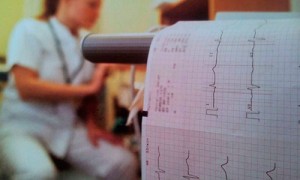With less than 48 hours before the British vote on whether to leave the European Union, two of the world's key central banks are bracing for the outcome.
Fears of a falling pound and Euro have European Central Bank President Mario Draghi on edge.
"It would be difficult also to speculate about one outcome instead of an another. And so let me just say that we are trying to be ready to cope with all possible contingencies," said Mario Draghi, president of Ruropean Central Bank.
And U.S. Central Bank Chair Janet Yellen issued a veiled warning Tuesday during her biannual address before Congress.
"It's up for them to decide. I'm simply saying the decision could have economic consequences that would be relevant to the U.S. economic outlook that we need to monitor carefully," Janet Yellen said.
Yellen has said the so-called BREXIT vote figures into the FED's calculations on raising interest rates.
Just as she did last week, Yellen appeared less optimistic about U.S. economic growth this year, maintaining a cautious approach that reduced four potential interest rate increases to just two before the end of 2016.
In addition to slower Chinese growth and lower oil prices, she cited the lower than expected U.S. job growth in May - and the half a million Americans who stopped looking for work.
"It is important for us to see ongoing progress in the labor market so that's something we want to carefully evaluate and is a focus of our attention," Janet Yellen said.
Interest rates in the United States have now been near zero since 2008. Yellen gave no sign of when the committee will raise them next. The governors meet again in late July.
Some members of the U.S. Congress expressed concern that a prolonged period of low interest rates would encourage speculation in equities, for example, but Yellen said the threat of that is low though it bears watching.







